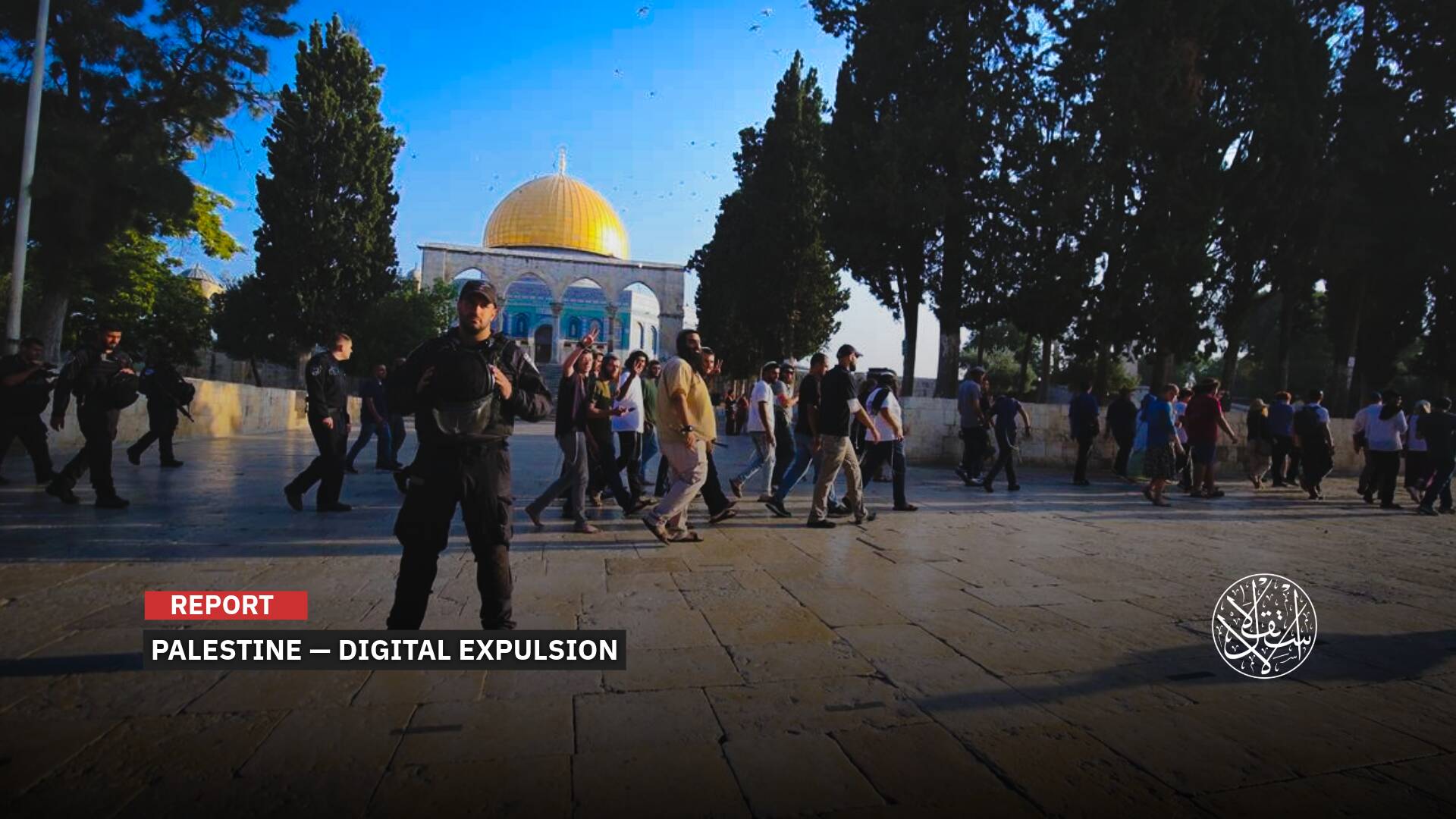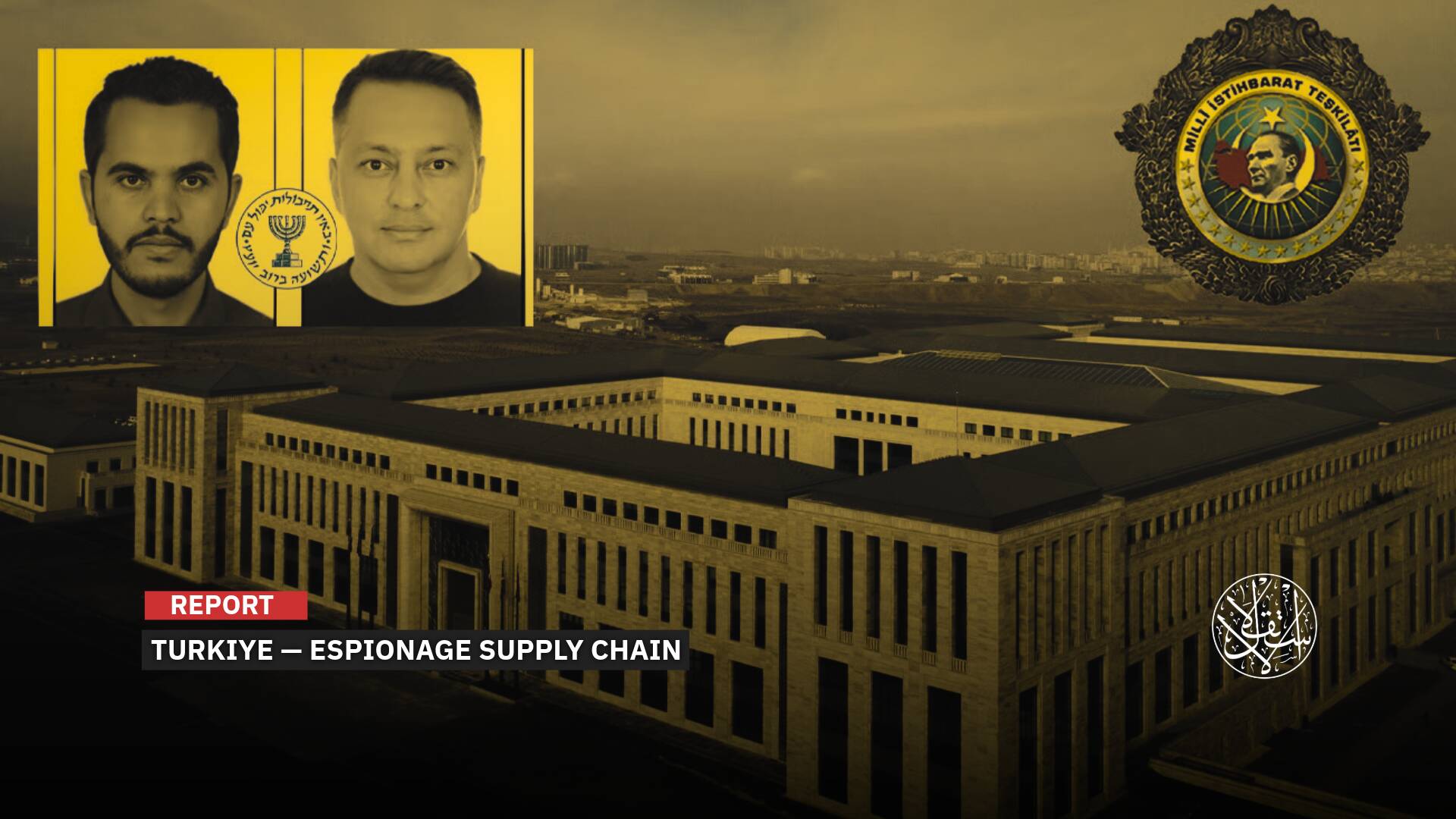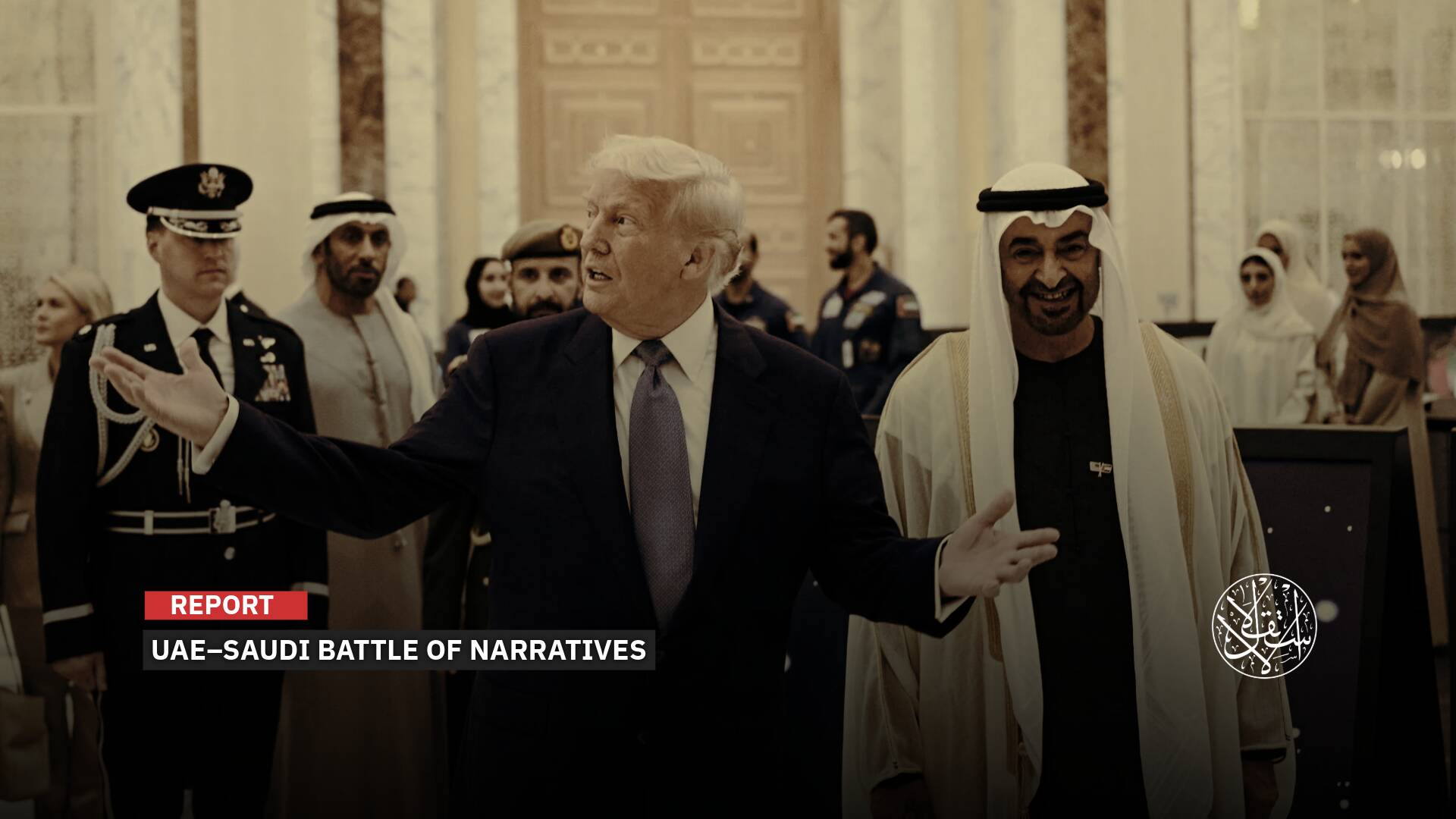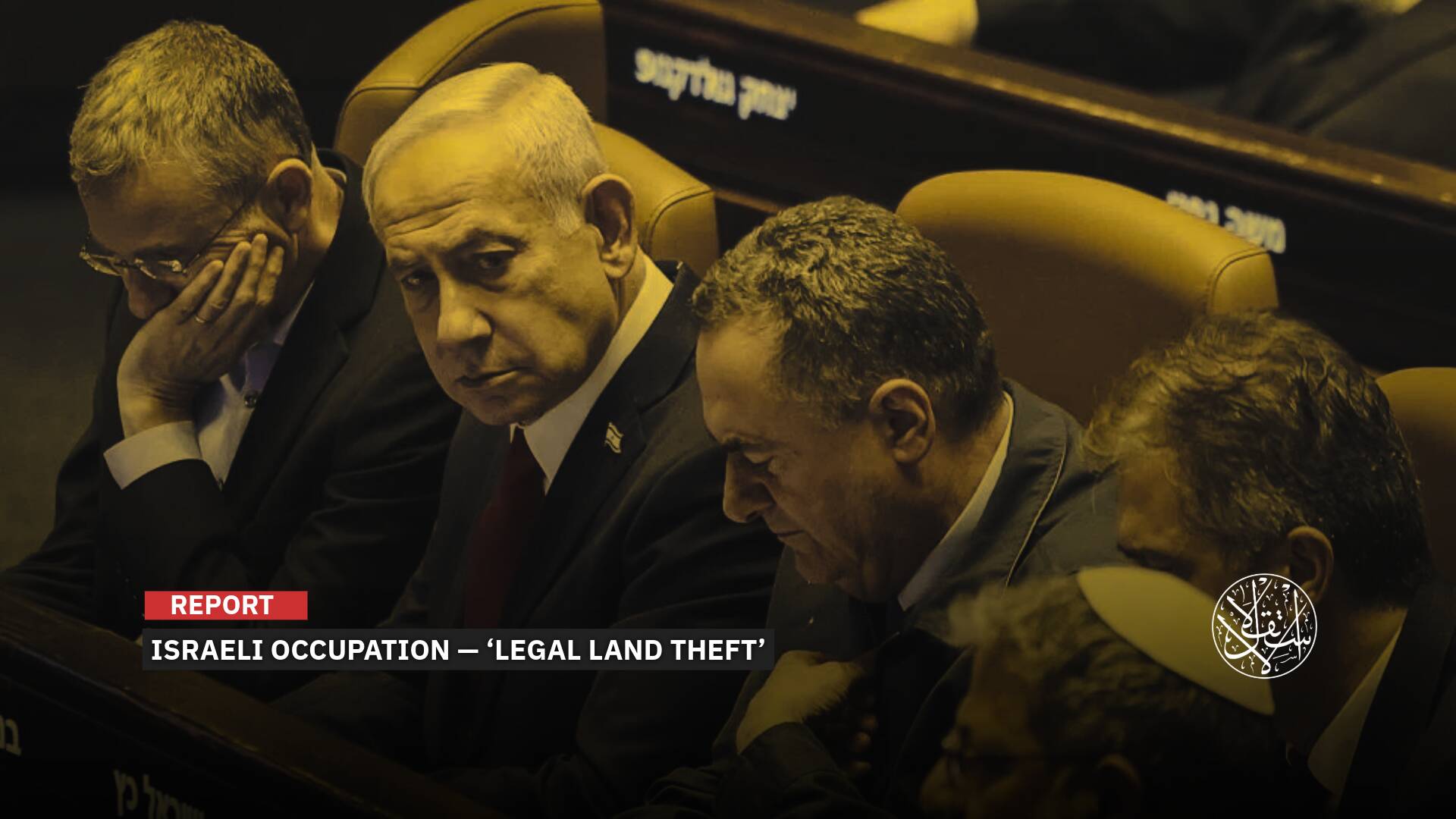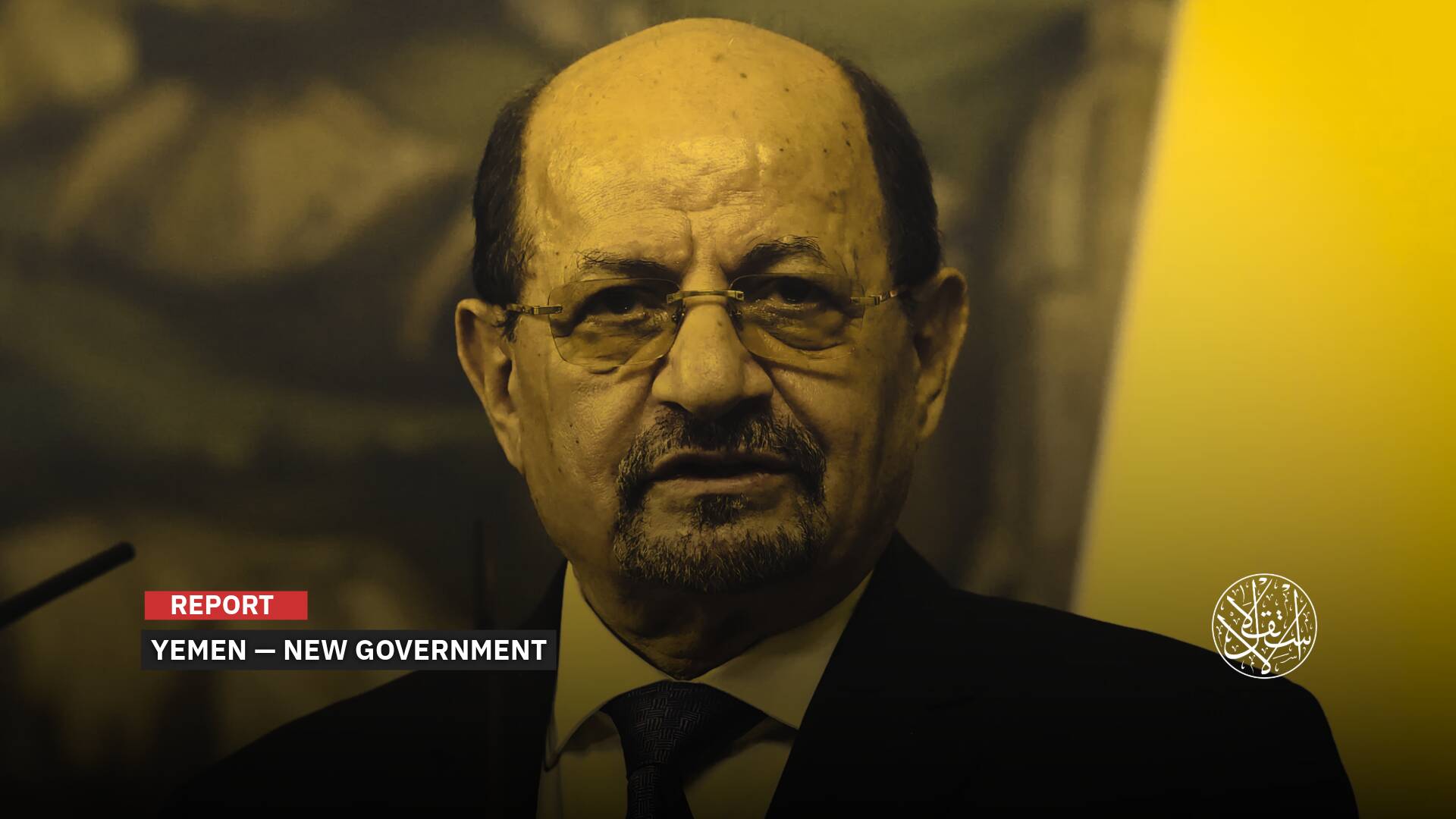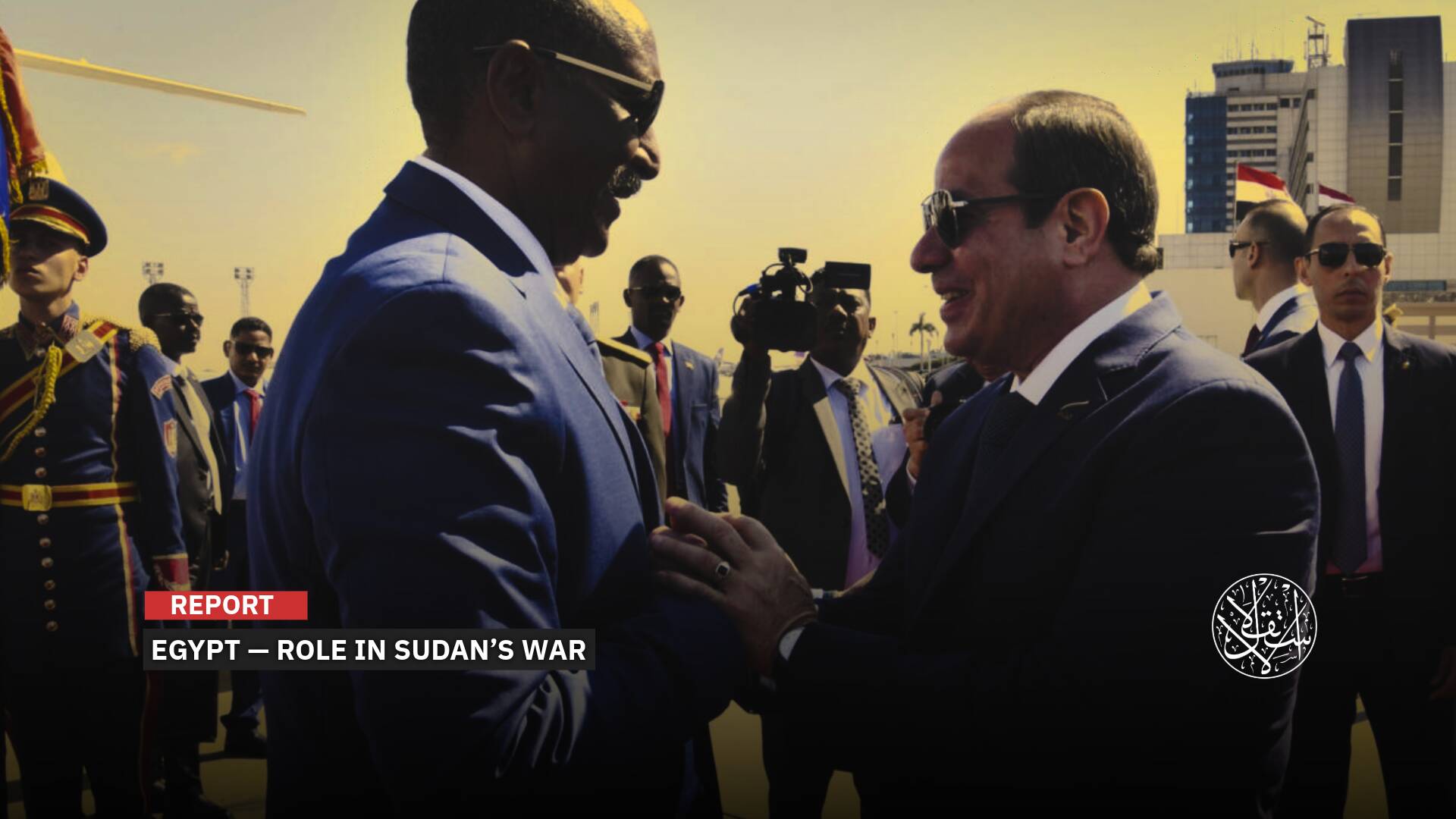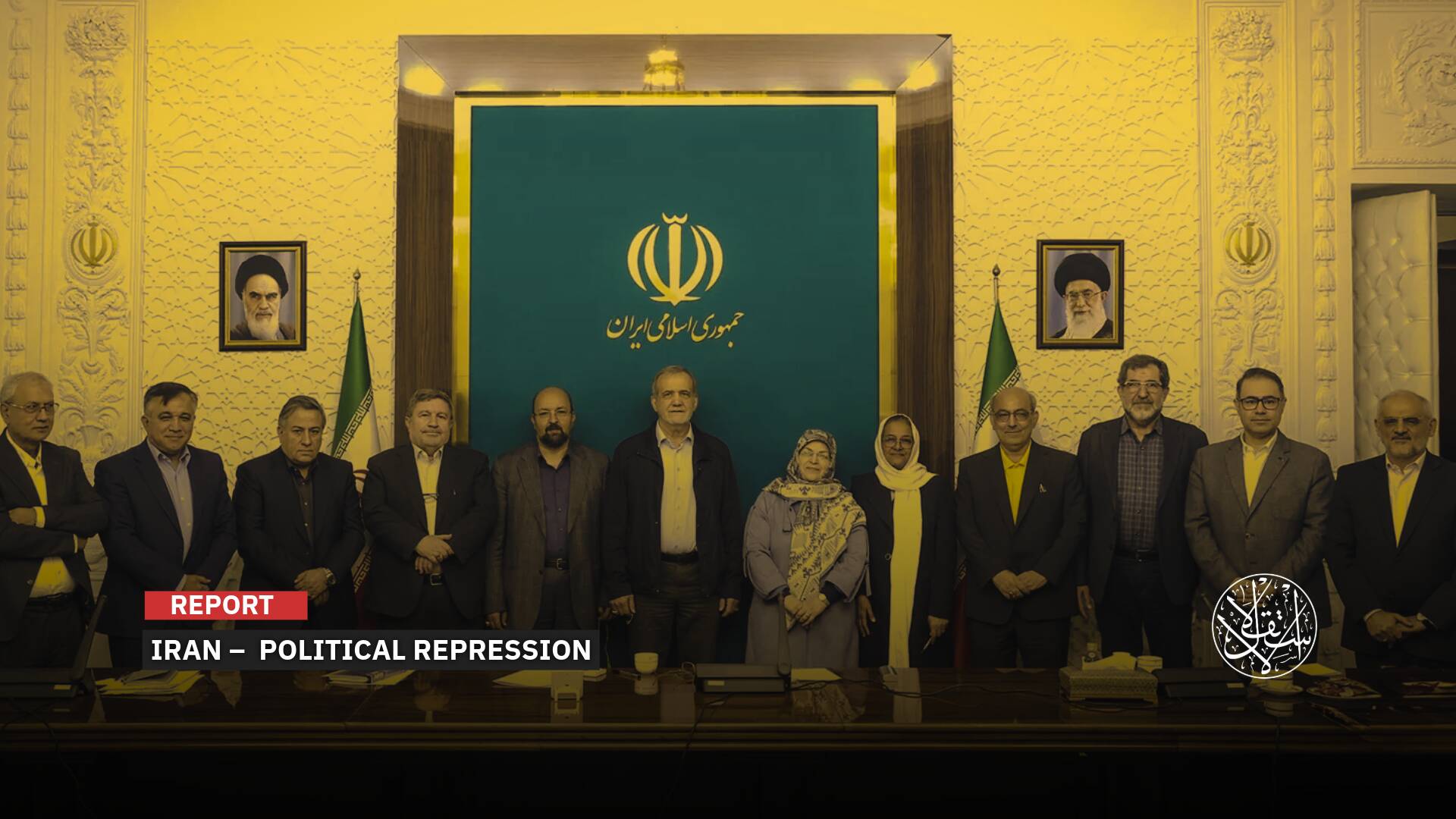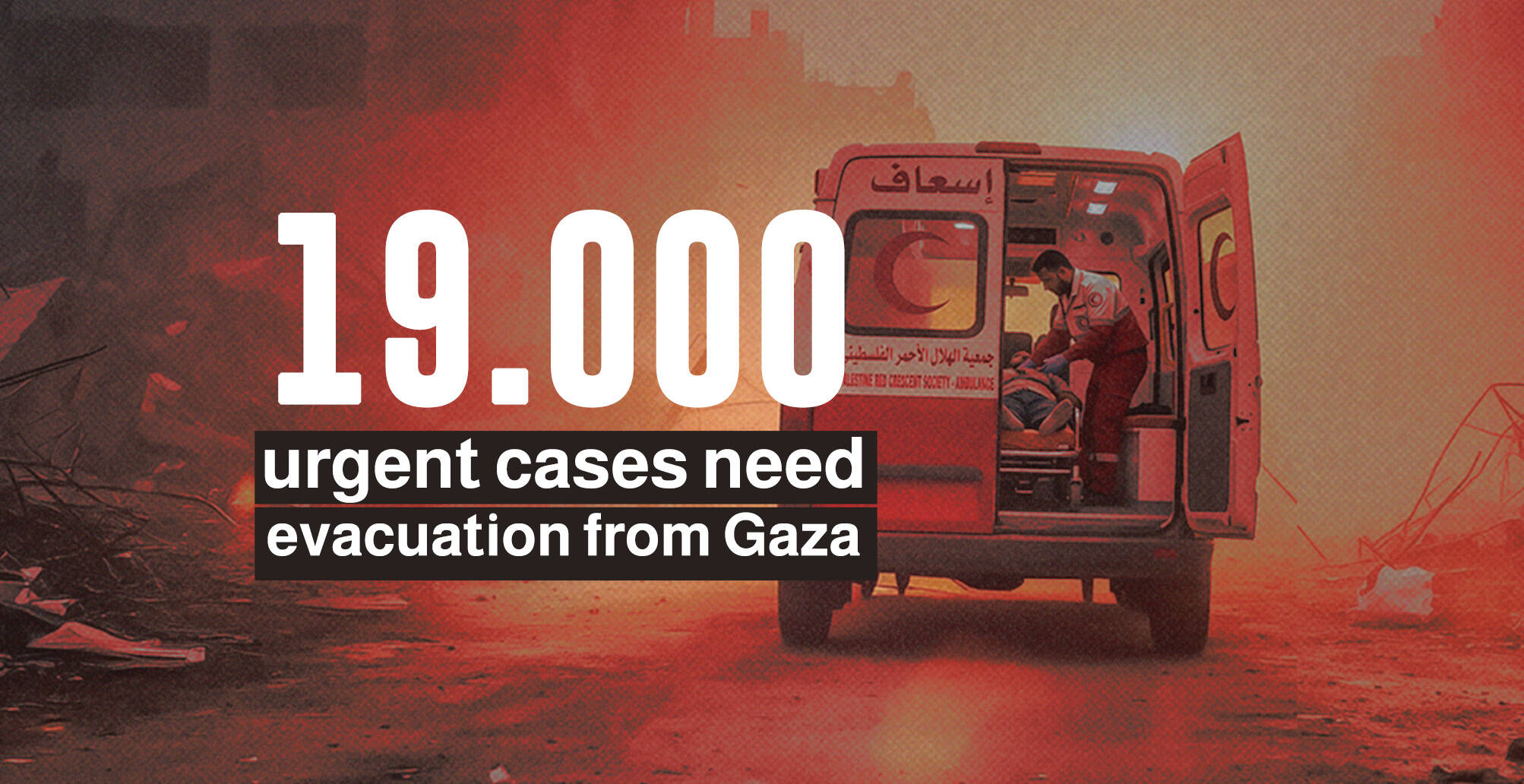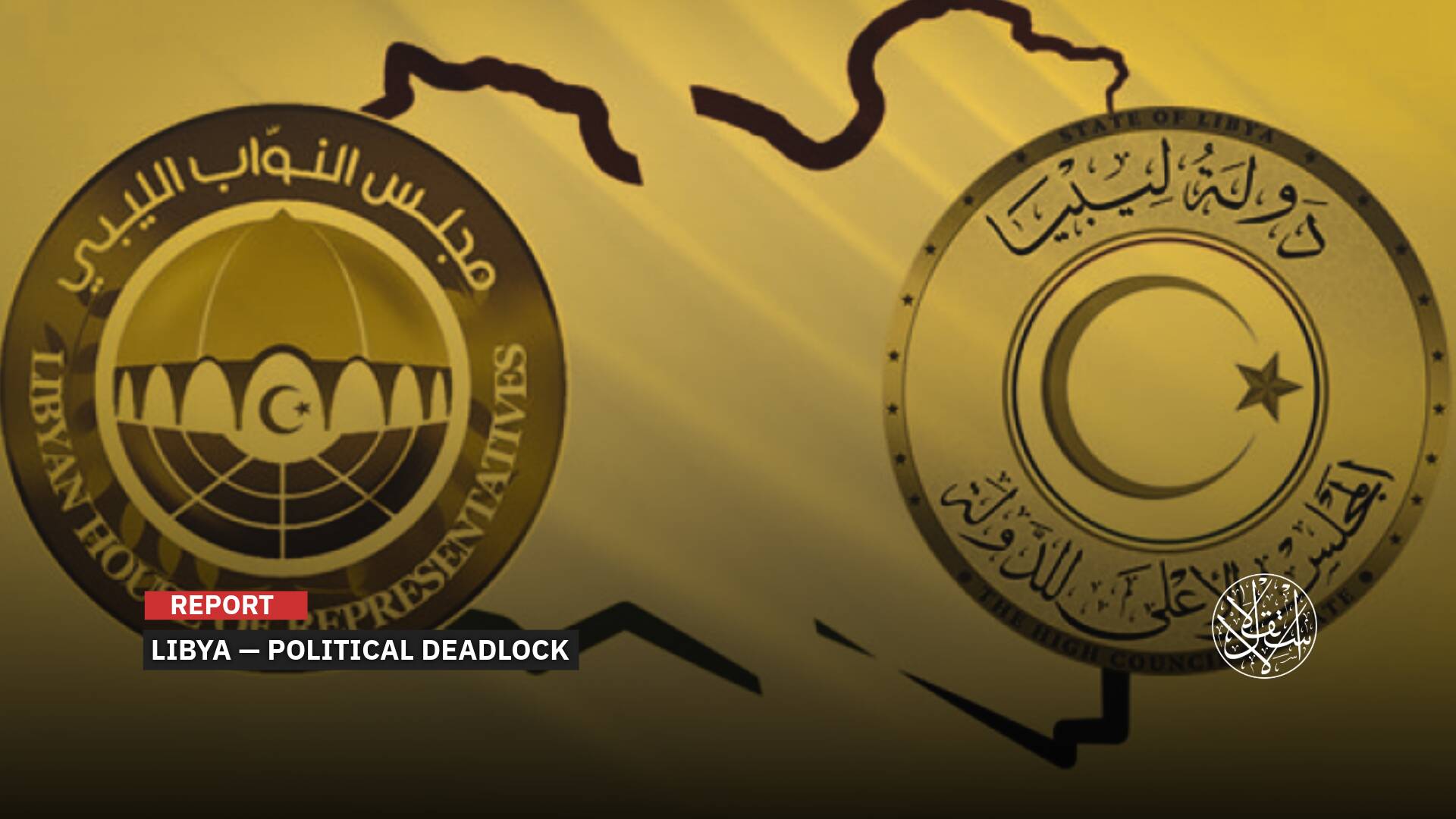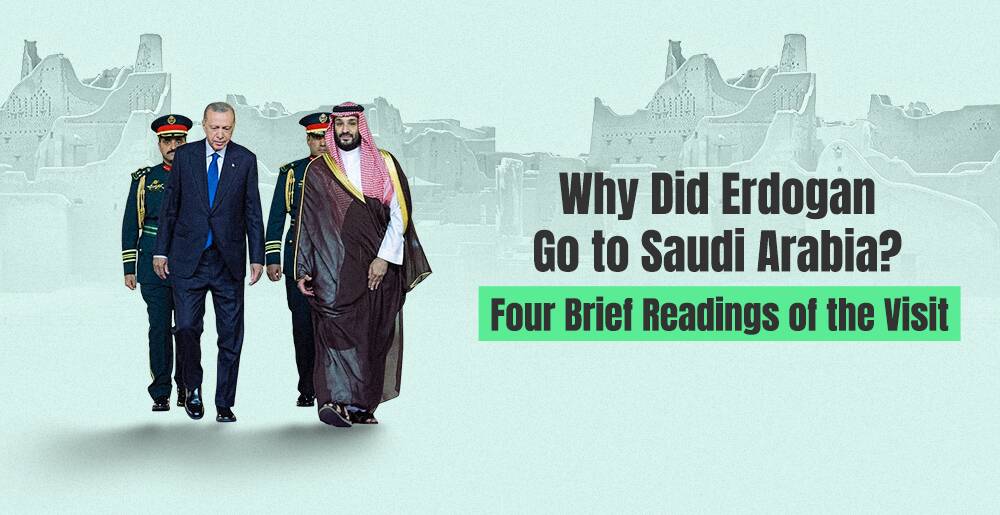UAE and Egypt; Deep Differences and Friendship that did not Last.
_3.jpg)
After years of harmony and friendship between The President of the Egyptian regime “Abdel Fattah El-Sisi” and The Crown Prince of Abu Dhabi “Mohammed bin Zayed”, suddenly the talk of disagreement between the Egyptian and Emirati regimes escalated, following discrepancies in the management of a number of internal and external files.
These disparities portend clear changes in the map of the region's alliances, and in the path of both countries that took different paths, “El-Sisi” and his old ally “Bin Zayed” are no longer at the heart of one man.
Signs of discord were evident in the words of "Bin Zayed", when he said: “This guy (El-Sisi) has to know that I'm not an ATM, now I will give, but on my terms, if I give, I must judge”, as revealed by the “Middle East Eye” in November 2015, British writer “David Hirst” said the Crown Prince of Abu Dhabi has become frustrated with “El-Sisi”.
Egypt's Absence
On April 16, 2021, Cyprus included a four-way meeting involving its Foreign Minister “Nikos Christodoulides”, and his Greek counterparts “Nikos Dindyas” and The Israeli “Gaby Ashkenazi”, in addition to “Anwar Gargash”, diplomatic adviser to the President of the UAE, amid the absence of Egypt, which usually attended such meetings, as an ally of the Eastern Mediterranean countries.
Egypt's absence has raised many questions, especially since it came within the framework of an Egyptian-Turkish rapprochement, in contrast to the Greek-Cypriot-Israeli alliance, where the UAE was finally found.
The presence of the UAE in this four-way meeting provoked a state of astonishment and astonishment, it has no view or borders on the Mediterranean Sea, and you can't make maritime agreements in this area, it is not even from countries close to that region.
The Israeli foreign minister welcomed the presence of the UAE Chancellor “Gargash”, “Ashkenazi” said in a tweet posted on his Twitter account: “we started the first four-way strategic meeting of the foreign ministers of Cyprus, Greece, the UAE and Israel”.
This comes as Egypt's interests are conflicting due to Greek-Israeli-Cypriot policies, starting with the East Mead Alliance for the supply of gas pipelines from the Mediterranean to Europe, all the way to the Blue Raman project, Tel Aviv signed an agreement in September 2020 with its counterparts in Greece and Cyprus, worth $890 million, to extend a 1,750 km offshore power cable to Europe's electricity grid, excluding Cairo from the project, despite the energy alliance that brings them together in the Mediterranean.
The presence of Greece alongside Israel in that project disturbed Cairo, especially since the Jewish state is seeking to reduce Egypt's role, in terms of being a communications and maritime cable hub in the region, there is no doubt that the UAE's drift to the Mediterranean at this time, confirms the depth of deep-seated differences between the two regimes in Cairo and Abu Dhabi.
Cairo – Ankara
On April 19, 2021, the Hebrew “Jerusalem post” said: “the UAE's accession to Israel, Cyprus and Greece must be seen, in the context of the UAE-Turkey dispute, it is in the common interest of the four countries to contain Ankara in the eastern Mediterranean and the region”.
The UAE has consistently pushed “El-Sisi” to support its regional allies, and to engage in political and military squabbles with Ankara, especially in the Libyan file, and gas exploration areas in the eastern Mediterranean, at the expense of Egyptian capabilities and wealth.
Egypt has largely ceded to Greece and Cyprus in the context of its escalating dispute with Turkey, this caused it to lose thousands of square kilometers of marine space and the wealth below, only due to the lying and hostility with the Turkish regime and to prove its loyalty to the UAE.
After years of escalating crises comes the Egyptian-Turkish rapprochement, and the talk of calming the conflict between the two countries, and increasing the chances of relations returning to normal, to raise the concerns of Cairo's former allies in Abu Dhabi, that this rapprochement will have a negative impact on the region's geopolitical alliances, especially with regard to the maritime conflict in the Eastern Mediterranean.
During the past period, the UAE has sought to thwart and disrupt Egyptian-Turkish reconciliations, this was confirmed by the Israeli newspaper “Hurriyat” on September 20, 2020,
When I mentioned that “the UAE has entered the eastern Mediterranean crisis line, I asked Egypt not to hold talks with Ankara, and stand by Greece against it, in exchange for financial support for the Sisi regime”.
“Discussions between the two countries (Egypt and Turkey) are taking place at a high level between the intelligence services”, the newspaper said.
In March 2021, the Institute for Israeli National Security Studies of Tel Aviv University stressed, one of the consequences of the Egyptian-Turkish rapprochement on the region.
He called on Israeli decision makers to monitor other indicators on the development of Cairo's policies, “Turkey's strategy is likely to succeed by sowing uncertainty among its opponents, this complicates a unified effort to exploit and protect gas fields”.
Normalization and Reconciliation
On December 21, 2020, “Mada Egypt” website published an unprecedented deterioration in relations between Egypt and the UAE, “when the UAE officially began normalizing its relations with Israel, and moved to pressure other Arab countries to follow suit, as part of a major restructuring of relations in the Middle East, (El-Sisi) has not been notified”.
“Egypt has watched with concern what the UAE is doing, from pressuring the United States to get Saudi Arabia to implicitly approve the Bahrain Agreement, to normalize relations with Israel”.
“UAE activity with regard to normalization in the region, caused Abu Dhabi’s relationship with Cairo to be strained, where the symptoms of this tension can be observed in Egypt's failure to send its Foreign Minister, to attend the signing of normalization agreements between Israel, the UAE and Bahrain at the White House”.
At that time, Egypt was moving towards supporting the elections of Palestinian factions, not the will of the UAE, on February 8, 2021, 18 Palestinian factions went to Cairo, they agreed to hold legislative elections.
On April 7, 2021, the Islamic resistance movement Hamas discussed, that the UAE has a deep hostility to, with a delegation from the Egyptian General Intelligence Service in the Gaza Strip, file of arrangements for Palestinian legislative elections.
These political differences between Cairo and Abu Dhabi, Egyptian journalist “Mohamed Hussein” commented on it in a Facebook post: “Egypt, for its part, seemed to be gradually moving away from childish acts to be treated as an adult state, with a promising country in the region that has a lot of ingredients for success and ability to act, it is Turkey, which has sent many positive messages of cooperation with Cairo and coordination with it, in many files such as Libya and the Eastern Mediterranean, anyway the next few days will be full of surprises, that may be positively reflected in the people”.
Ennahda Dam
As the Ethiopian Renaissance Dam crisis reaches a closed road, many questions have been raised about the role-played by the UAE, which was “El-Sisi's” biggest and most important ally in supporting Ethiopia, while Egypt was left facing the most serious issue related to its water security, the questions were about why Abu Dhabi left Cairo facing its own destiny, and you dealt with the dam case very conservatively?
The surprise is that the UAE has not only played a negative role, rather it played a positive role in for the Ethiopian adversary, London's “Al-Quds Al-Arabi” newspaper revealed that the UAE has provided generous financial support to Ethiopia, which enabled it to modernize its army's defense system, and get Russia’s advanced “Pantsir S1” air defense system, to be used to protect the Renaissance Dam, 70 percent of which has been completed so far without any threat.
On “Bin Zayed's” visit to Addis Ababa in mid-June 2018, Ethiopia said: “The UAE will deposit $1 billion of it at the Central Bank to alleviate the severe shortage of foreign currency”.
As reported by press reports, led by the London newspaper "The New Arab", UAE investments amounted to about $3 billion in Ethiopia, it is concentrated in tourism and hospitality, Abu Dhabi has also provided substantial financial assistance that has contributed to the construction of the dam, in addition to its pledge in 2019 to provide $3 billion, in the form of aid and investment to Ethiopia, in support of Ethiopian Prime Minister “Abiy Ahmed”.
Libyan Conflict
From Addis Ababa to The Libyan capital Tripoli, where conflicting visions came in managing the Libyan crisis, one of the most important axes of the dispute between Egypt and the UAE.
At the end of December 2020, an Egyptian delegation went to Tripoli after a six-year break, in a visit that marked the beginning of a new situation in Libya, especially since the Turkish side that supports the legitimate government of “reconciliation”, showed flexibility and his Foreign Ministry made positive statements, on the possibility of developing relations and resolving differences with Cairo.
The Egyptian visit represented a shift in the Libyan file, as Cairo sought to resolve the crisis away from the military intervention, which was favored by the UAE, especially since Egypt, according to frequent media reports, she was one of the strongest opponents of general “Khalifa Haftar's” military campaign to take control of Tripoli.
Indeed, on February 10, 2021, Sisi pledged his country's full support for Libya's new interim executive branch, he made two phone calls to congratulate the President of the Libyan Presidential Council, “Muhammad Al-Manfi”, and Prime Minister “Abdel Hamid Dbeibah”, by forming the country's interim executive branch, these Egyptian moves have upset the UAE, the more hardline party that is constantly calling for the idea of a military solution and resolution by “Haftar's” forces.


